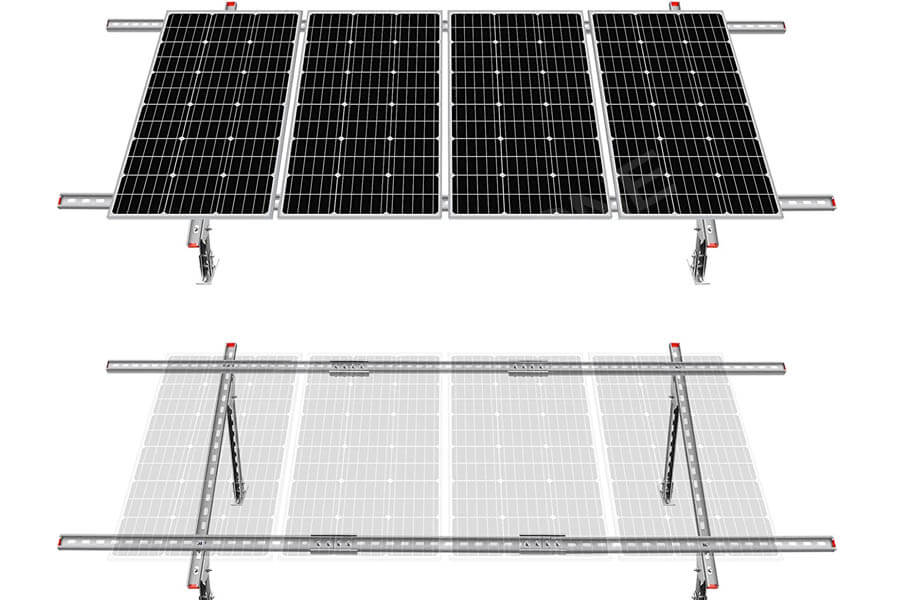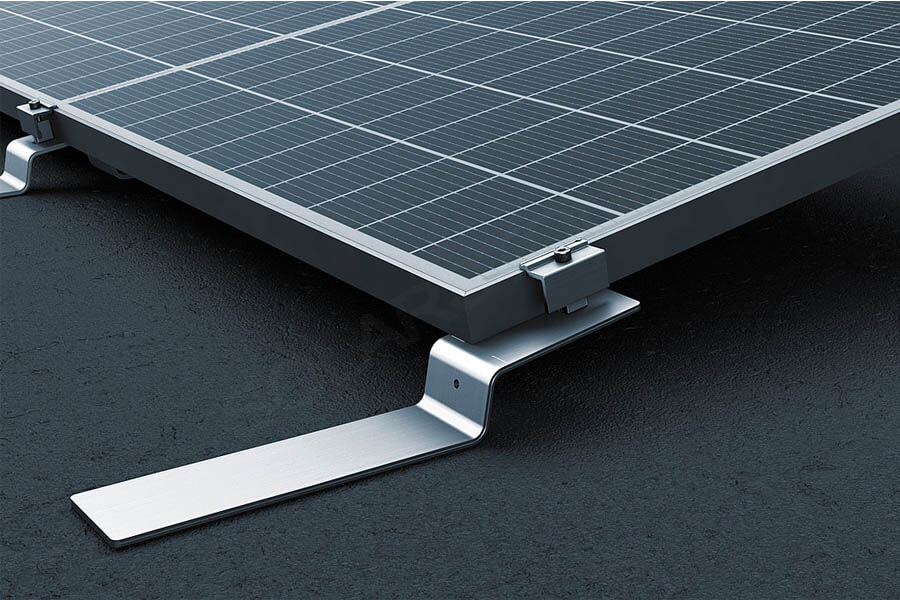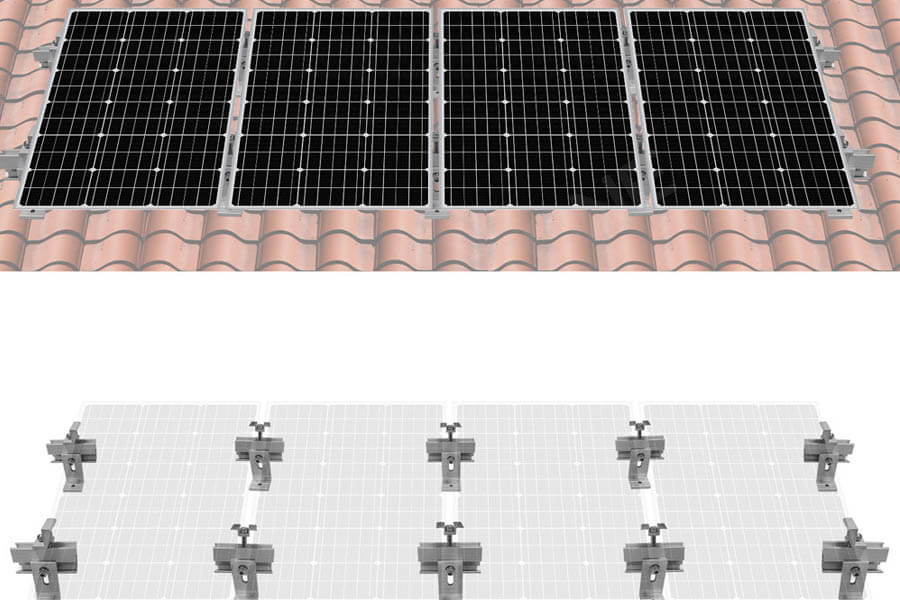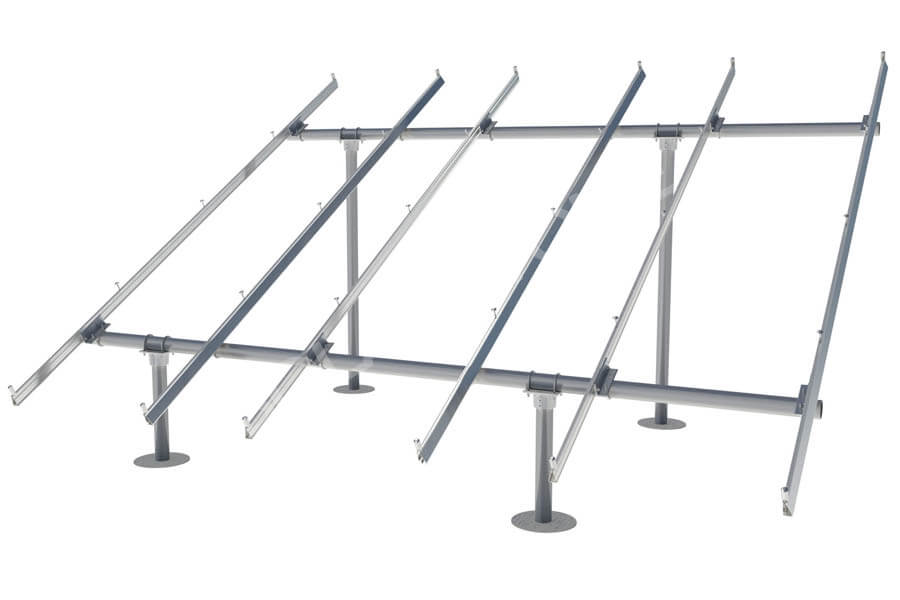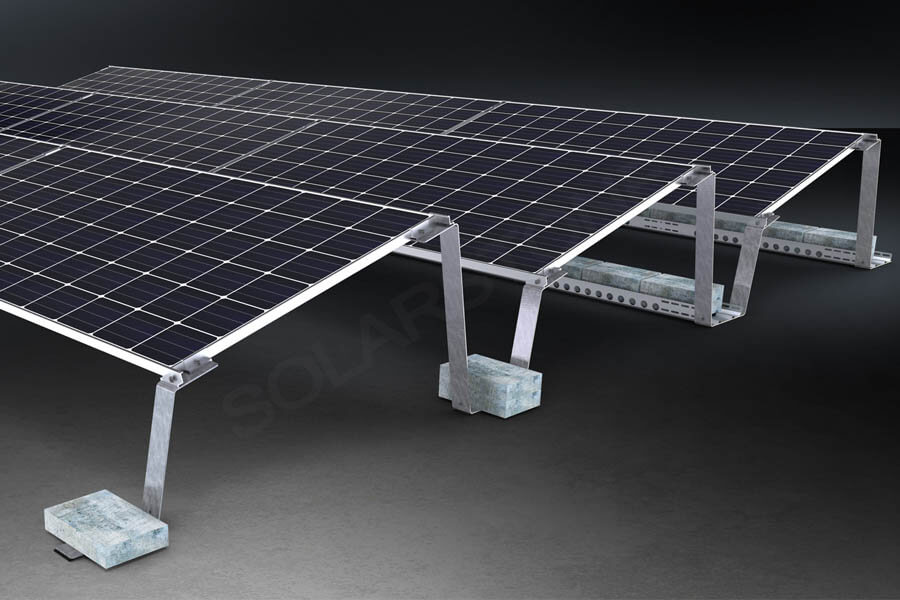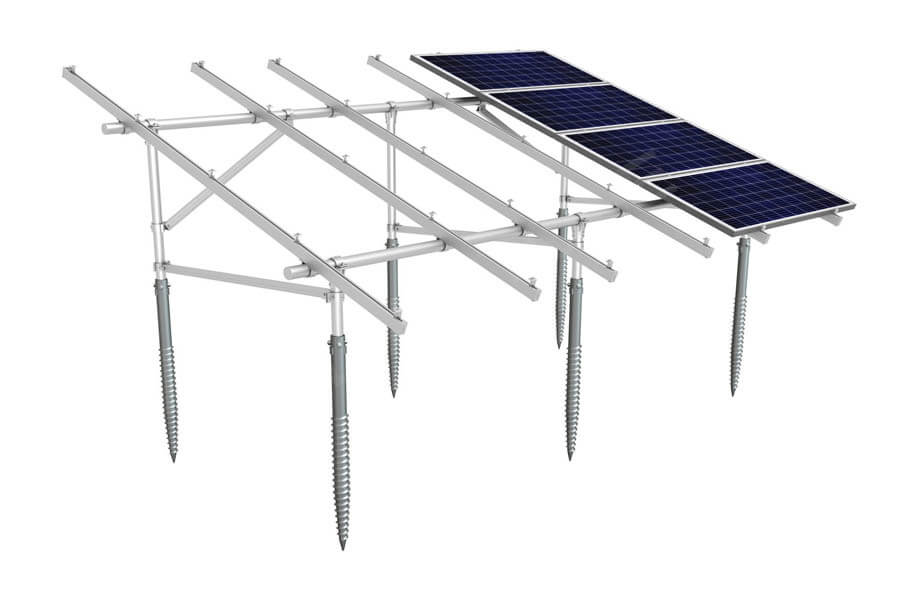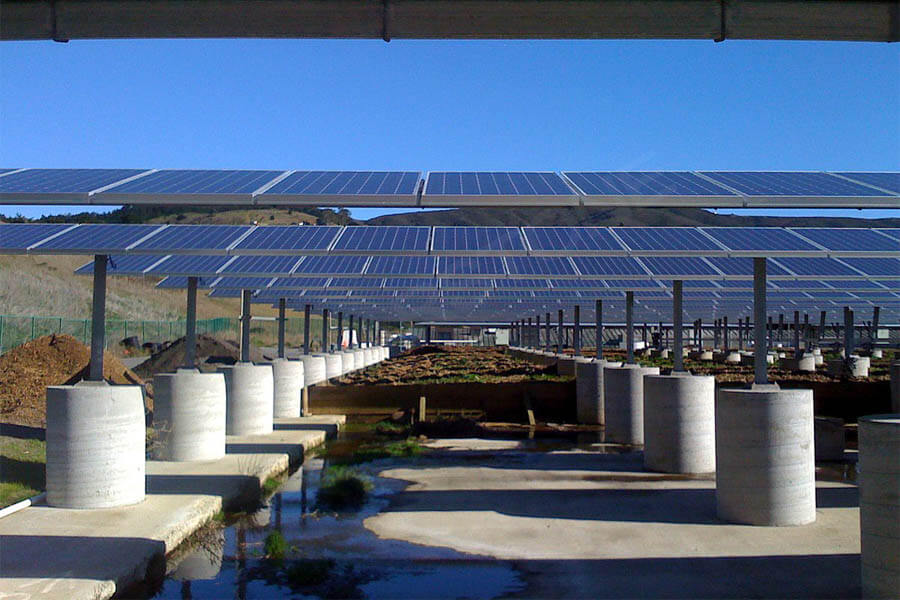Recently, many homeowners have switched to renewable energy and energy-efficient electricity for their homes. They use clean energy from solar panels for their homes. Solar panels are made of photovoltaic cells. These solar cells are placed between silicon layers, which are conductors. When sunlight hits the panel, it generates electrical energy.
The inverter installed on the solar panel converts electrical energy into usable energy for running various household appliances. The solar panel installation guide is used to install solar panels on the roof or support ground mounted systems.
What are the installation rails and racks for solar panels?
Solar brackets and brackets are devices that help to correctly install the solar system in a safe location. If there is no appropriate solar system roof support, the panel will not remain in place. If you do not use a high-quality installation system, you may affect the stability of the roof.
Therefore, when choosing to install the system, you must be confident that it can withstand all adverse weather conditions.
Based on your requirements and space availability, you can install solar systems in various ways: on rooftops, on utility poles on the ground, and using trackers. By fully installing solar panels, you can optimize their performance to generate the best power output based on azimuth angle.
The panel will receive maximum sunlight exposure in the correct position, thereby improving its overall efficiency. Choosing an appropriately installed array can keep the solar system in place for a long time, possibly up to 25 years.
As solar panels become popular, manufacturers have designed unique installation structures that can be used with any solar system. These structures can flexibly adapt to different installation guide rail technologies. If you are looking for portable and simple options, fixed installation hardware seems to be the right choice.
However, if you want a customized sun tracking array, you will have to spend more money. Regardless of your installation options, it must adhere to durability and structural integrity guidelines. Choosing a compromise installation rail system may put your safety at risk.
Solar bracket system components
The installation of solar panels consists of three main components. It includes roof accessories, mounting rails, and module clips. Each of these components stabilizes the solar panel, so it will not move from its position.
#1 Roof accessories
Roof attachments are fasteners that drill into the roof. It helps to provide a safe connection for the installation guide rail. Your roof type (asphalt, tile, flat) will affect your roof attachment options.
For example, you can obtain composite tile roof accessories to prevent leaks. On the other hand, vertical metal joint roof attachments are designed using fixtures fixed below the metal joint
#2 Installation guide rail
The installation guide rail is the next component connected to the drilled roof attachment. These rails are fixed and provide necessary support for the solar panel.
These guides come in different lengths and thicknesses to choose from. You can use thicker rails to support more weight because it is more sturdy. On the other hand, thin rail tracks are not suitable for use in snowy weather conditions.
You can also install the rack without rails, but many people choose to install rails because they are easy to use. In addition, it allows you to adjust the solar system from different angles.
#3 Module clamp
The module fixture connects the solar system to the installation rail. The type of module clamp required for rail installation. If you have a standard solar panel, you should get an adjustable module clamp.
Different types of solar system installation materials
When searching for solar brackets, it is easy to be overwhelmed by available options. Don’t worry, as we have listed some standard options, so you can make wise decisions. Please remember that your location, budget, and similar factors can affect the type of rail installation you choose.
#1 Aluminum
Aluminum installation rails are lightweight, corrosion-resistant, and sturdy. This is an easy to machine material because you can use standard tools to drill holes on aluminum corners. Not to mention, this installation guide material is suitable for various solar panel frames. But aluminum is not easy to weld.
#2 Angle iron
Angle iron is another material that is easy to machine. You can easily find this material and weld the bracket, but it is easy to rust. Therefore, it is not an ideal choice for installing guide rail materials in humid environments.
#3 Stainless steel
Although stainless steel installation rails are difficult to use, they can be used for many years. It is available on the expensive end.
#4 Wood
The last material is wood, which is cheap. Although it is easy to use and easy to use, it cannot withstand harsh weather conditions. Even if you treat wooden installation rails with preservatives, they will still be damaged.
Types of solar support structures
You must choose the optimal solar installation rail structure for solar panel installation. By using an appropriate structure, you can make the panel more efficient and durable. Solar panels are expensive equipment, so you cannot ignore the choice of installation system. The solar cell components must be stable so that the panels can easily withstand snow, wind, hail, or rainwater.
We have discussed some standard options for solar installation, so you can repair the solar panels and fully utilize them.
#1 Roof mounting bracket
The first one is the roof mounting bracket. It reduces the wiring distance between the solar cell array and the inverter or battery pack. However, this type of solar installation structure involves roof penetration.
In addition, there is a high risk of leakage during roof installation. So, if you choose this type of structure, please ensure that the roof is tightly sealed after the installation of the solar panel; It is best to inspect the solar panel after the first rainfall after installation.
In addition, if the direction and angle of the roof are not appropriate, the roof mounting brackets in the system may waste a large amount of potential energy. There are no trees or structures that must block direct sunlight in order for the roof installation system to function properly.
Common engineering problems with roof mounted racks include wind tunnel testing of the boundary layer, seismic behavior analysis, and UL 2703 [1] certification. This solar installation structure is very suitable for spacious roofs. You can use this structure to create adjustable or fixed installations.
#2 Ground support
If you want to install solar panels on the ground of your home, you can choose a ground bracket. This solution is very suitable for people with insufficient roof space. In addition, if trees or buildings cover your roof, you can consider installing floor brackets.
Using this solar installation structure to install panels, they can be tilted up or down to better absorb sunlight. The only drawback of this installation structure is that it is prone to snow accumulation and leaving accumulation, dirt, and debris. This means that ground installation is suitable for safe areas with almost no dust or snow.
#3 Pole installation
This type of solar installation structure allows for the installation of solar panels on power poles. You can choose to install the rod on the top or side of the rod. Using the column top, you can install solar panels a few feet above the column.
On the other hand, the pole side allows you to install solar panels on the pole side. You can choose the pole top fixing bracket to securely install the panel onto the top mounting pole using concrete. In this way, the panel becomes less susceptible to damage and dirt, but cleaning the panel becomes challenging.
#4 Install tracking system
The installed tracking system is used for solar water pump systems and solar tracking systems. This installation structure allows maximum solar radiation to fall on the solar panel. You can choose a single axis or dual axis installation structure.
It is very suitable for hot areas or places with almost no clouds. The motion of the sun from east to west is measured using a single axis tracker. On the other hand, the two axes are used to track the daily motion and seasonal path of the sun.
If you use a solar tracker, it will be helpful because it will automatically track the motion of the sun throughout the day. In this way, the panel can receive maximum sunlight. Although the structure of installing a tracking system is helpful, many people avoid installing it because it is expensive.
Summary
You can say ‘yes’ to clean energy and reduce water and electricity costs by installing solar panels. For panel installation, you need the necessary installation components, namely roof accessories, installation rails, and module clamps.
When choosing a rail installation, you must consider your budget and location in order to choose the correct option for fixed, tilted, or angled solar panel installation rails.


